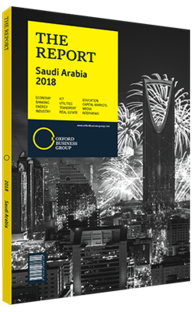Prince Turki bin Saud bin Mohammed Al Saud, President, King Abdulaziz City for Science and Technology (KACST): Interview

Interview: Prince Turki bin Saud bin Mohammed Al Saud
What new technologies are arising in line with National Transformation Programme (NTP) targets?
PRINCE TURKI BIN SAUD BIN MOHAMMED AL SAUD: KACST is advancing steadily towards its NTP strategic goals. Published research has continued to rise; while we had originally planned to increase the Kingdom’s research publications to 17,000 in 2016, we were able to produce 18,950. We are also rapidly proceeding towards our 2017 targets regarding technology patents. In terms of local content, infrastructure and facilities, we are planning to complete the construction of nine facilities by end-2017, having already opened eight since January 2017, including the first Saudi desalination plant, inaugurated in Oyanna in early 2017.
KACST has also achieved significant strides in its unmanned aerial vehicle programme, launching Saqer 1 in May 2017, which is equipped with satellite communication technologies enabling it to fly across long distances – over 2500 km – and maintain control in high and low altitudes. Our efforts to create a strong R&D environment in the Kingdom are providing tangible results, with 2018 set to be even more fruitful.
How is aerospace knowledge, manufacturing and infrastructure being developed?
PRINCE TURKI: In terms of workforce, there are hundreds of Saudis who operate the latest and most advanced remote sensing and telecommunication satellites within KACST’s campus, serving many government and private organisations. There are also hundreds of researchers, engineers and technicians working on the manufacturing side, using the advanced satellite infrastructure available. Many initiatives have been launched to further develop human resources in this field, such as scholarships, technology-transfer programmes, specialised training as well as joint development programmes with leading international entities in the field. Indeed, we have a full team of engineers working at Lockheed Martin on manufacturing the SaudiGeoSat-1. Also, in a successful joint project with the National Aeronautics and Space Administration and Stanford University, we launched the scientific payload on our SaudiSat-4 satellite in 2014 and met all the technical requirements to host it. Saudi Arabia’s capabilities are ripe for full industrialisation and are the most competitive in the region.
What initiatives are in place to support start-ups?
PRINCE TURKI: Our goal is to create 600 start-ups and 3600 jobs by 2020. To achieve this, KACST established the Badir Programme for Technology Incubators in 2007 to create a knowledge-based economy by supporting the creation of more technology-sustainable start-ups. Since its inception, Badir has served more than 200 start-ups, reaching out to their customers and utilising government support. It has also worked on developing the national incubation policy. This created an angel investment network, and fills the gap between universities and communities by creating university entrepreneurship programmes. Badir has seen successful gains by incubated businesses in all the fields in which it operates, namely ICT, advanced manufacturing and biotechnology.
How can domestically pioneered desalination technologies be commercialised?
PRINCE TURKI: Saudi Arabia is the fastest-growing water desalination market in the Gulf, with water consumption per capita approximately 30% of the GCC average. These two factors show that the localisation of water desalination technologies can bring substantial savings and growth to the domestic economy. The world’s largest adsorption, cooling and desalination pilot, as well as R&D at KACST Solar Village, are the best examples of such efforts. After three years of R&D, this renewable technology is ready for modelling, engineering, designing, manufacturing, procurement and construction. Saudi localisation of water desalination is expected to occur at an early stage of this technology.
You have reached the limit of premium articles you can view for free.
Choose from the options below to purchase print or digital editions of our Reports. You can also purchase a website subscription giving you unlimited access to all of our Reports online for 12 months.
If you have already purchased this Report or have a website subscription, please login to continue.

